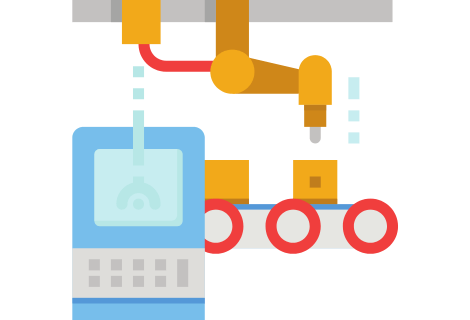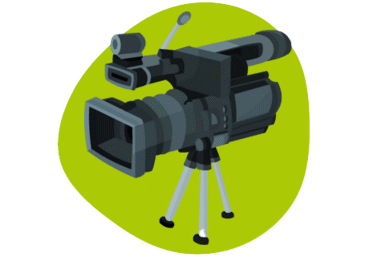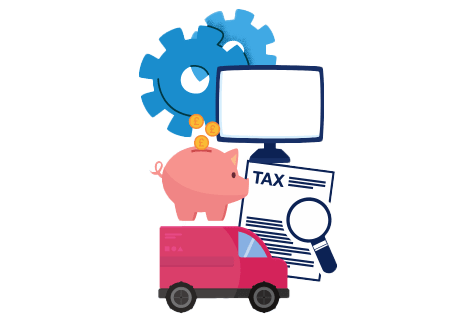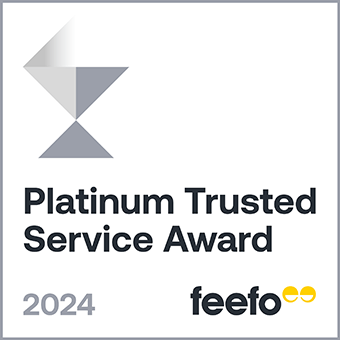
What is asset finance?
Asset finance is a type of business loan that lets you get necessary assets for your company without paying for them upfront. Instead, you spread the cost over a specific term. It’s commonly used when you may not have the money available to buy an asset outright.
With this approach, you could get equipment, machinery, technology, vehicles, and more.
It can help you expand your operations, upgrade equipment, and get assets without using all your available funds in one go. Plus, spreading the cost over time may help you manage your cash flow better.
What types of assets are covered?
The types of assets covered can be broken down into three sections:
Hard assets refer to physical high-value items crucial for sustaining your business operations. These assets often hold their value for a long period, providing lenders with strong security.

Hard assets may include:
- Vehicles (cars, trucks, trailers, buses, coaches etc.)
- Machinery
- Equipment
- Properties
- Manufacturing plants
- Any type of infrastructure
Medium assets sit between hard and soft assets, so they have both tangible and intangible aspects. These intangible elements can enhance the overall value of the asset.

Medium assets may include:
- Certain types of technology or computer software
- Special machinery with software embedded in it
- Medical tools with patents
- Custom equipment designs
- Valuable historical instruments
- Rare collectibles
Soft assets are intangible items, which can be extremely valuable to businesses. They can play a crucial role in helping a company hold a competitive advantage, making them equally essential alongside tangible assets.

Soft assets may include:
- Licences and permits
- Patents and intellectual property
- Trademarks
- Copyrights
Different types of asset finance
There are a few types of asset finance that serve different purposes.
Hire purchase
Hire purchase allows you to rent an asset over an agreed term. Each month you will pay instalments, which cover both the depreciation of the asset and any interest incurred. At the end of the term, you can buy the asset outright.
With hire purchase, you spread the cost of your investment over a set term. This can make it easier to manage your finances. It can be effective when you need to get vehicles, machinery or construction equipment that have a resell value.
Finance lease
A finance lease is where a leasing company lets a business use an asset for a set duration at a fixed monthly cost. It is also known as a capital lease. Unlike some other lease types where ownership stays with the leasing company, there's often an option for you to buy the asset at the end of the term.
This solution provides a flexible way to get vital assets, with the potential for eventual ownership.
Operating lease
An operating lease provides a cost-effective way to get crucial assets. With this lease, you'll rent the asset for a set period, but you won't have the option to buy it at the contract's end.
This arrangement is useful for businesses needing frequent equipment upgrades and who prefer not to own it after the lease term ends.
Asset refinancing
Asset refinancing allows you to unlock funds by using your existing business assets. With this method, you sell an asset you own to a lender, which releases cash that was tied up in your possessions. Afterward, the lender leases it back to you for a fixed monthly fee.
This setup allows you to continue using the asset whilst freeing up cash for other needs. Therefore, it’s a good option if you’re asset-rich but cash-poor.
The arrangement is often referred to as a 'sale and leaseback’ agreement.

When would I use asset finance?
You might consider using asset finance in various situations such as:
- Business expansion: When you need to invest in new equipment, machinery, vehicles, or technology to expand your operations.
- Equipment upgrade: When you want to upgrade your existing equipment to improve efficiency, productivity, or competitiveness.
- Cash flow management: When you would prefer to preserve your working capital for other purposes.
- Tax efficiency: When you want to benefit from tax advantages associated with leasing arrangements, such as deducting lease payments as operating expenses.
- Risk mitigation: When you want to avoid the risks associated with owning an asset, such as depreciation.
Ultimately, whether to use this option depends on your business needs, financial situation, and strategic objectives. Speaking with a financial advisor or asset finance broker can help you understand if it is the right solution for you.
Benefits of asset finance
- Preserve cash: This option lets you get the vital equipment and technology you need without spending all your cash upfront. This keeps your funds free for other crucial expenses.
- Flexible financing: You have flexibility in repayment structures, with options like hire purchase, leasing, or refinancing to choose from.
- Access to modern equipment: You can stay competitive by getting the latest machinery and technology without large initial costs.
- Maintenance costs - In some agreements, the provider covers the costs associated with maintaining the asset rather than the business. This arrangement could result in cost savings for you.
Disadvantages of asset finance
- Higher costs: While it can preserve your cash initially, in the long term, it may become more expensive due to interest and fees.
- Ownership limitations: You might not own the asset until you complete all payments. In some cases, you may never own it, which can limit your control.
- Dependence on lenders: You rely on lenders for financing, which exposes you to risks like changing interest rates.
- Asset repossession: If you fail to keep up with your repayments, it may result in the provider repossessing the asset. Additionally, this could harm your credit score, potentially impacting your ability to get other forms of finance in the future.

How do I apply for asset finance?
Applying is easy. Follow these three steps to see if you’re eligible and apply:
- Determine what you can afford each month and decide on the type of arrangement you need.
- Get in touch with our experts through our online form above. Alternatively, call our team for free at 0800 032 3535 to express your interest.
- Using our unique database, we'll search for a solution from our network of lenders. If we find a suitable product and you’re satisfied, we'll move forward with the final steps and arrange it with the lender for you.
- To speed up the process, it's helpful to have all relevant documentation available to support your application.
Remember, asset finance is tailored to each individual, so no two applications are alike. It's best to communicate directly with us about your requirements, so we can assess if this is the right solution for you.





